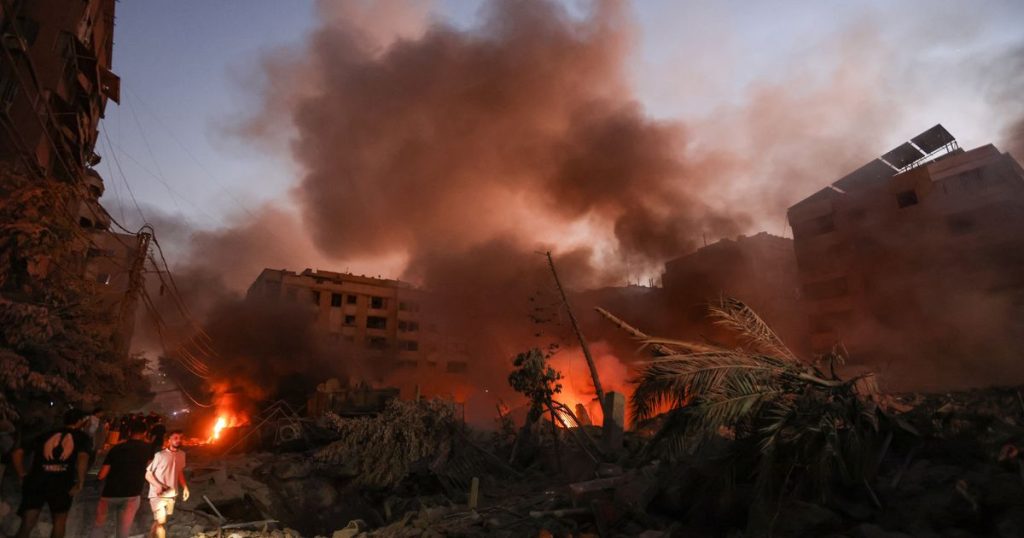The Israeli military conducted a series of strikes on the central headquarters of Hezbollah in Beirut, causing massive explosions that destroyed multiple buildings and sent smoke billowing into the sky. Reports suggested that Hezbollah leader Hassan Nasrallah may have been the target of the strikes, based on the size and timing of the blasts. Prime Minister Benjamin Netanyahu cut short a visit to the United States, signaling the significance of the operation. Israel’s campaign against Hezbollah has intensified, with a focus on eliminating senior leadership.
Israeli army spokesman Rear Adm. Daniel Hagari confirmed that the strikes targeted the main Hezbollah headquarters located beneath residential buildings in Beirut’s southern suburbs. The blasts caused six buildings in the Haret Hreik neighborhood to collapse, resulting in casualties. The Pentagon stated that the U.S. had no advance warning of the strikes in Beirut. Israel has escalated its airstrikes in Lebanon in an effort to end Hezbollah’s attacks on Israeli territory, potentially leading to a ground invasion to push the militant group away from the border.
The death toll in Lebanon has risen to over 720, with at least 25 people killed in Israeli strikes on Friday alone, including women and children. Netanyahu vowed to continue degrading Hezbollah until Israel achieves its goals, which has cast doubt on a proposed 21-day truce between Israel and Hezbollah. Despite international efforts for a diplomatic solution, Hezbollah has continued to fire rockets into Israel in support of the Palestinians, leading to daily clashes between the two sides.
An Israeli security official speculated that a potential war against Hezbollah may not last as long as the conflict in Gaza due to narrower operational objectives. The Israeli military has focused on targeting Hezbollah rocket launchers and infrastructure in southern Lebanon, leading to retaliatory rocket fire towards northern Israel. Civil defense workers in Lebanon have been retrieving bodies from the rubble of buildings destroyed in the strikes, highlighting the human cost of the conflict.
Hezbollah officials and supporters remain defiant in the face of Israeli attacks, vowing to continue fighting until Israel stops its offensive in Gaza. Despite the loss of top commanders and weapons capabilities, Hezbollah maintains a significant arsenal of rockets and missiles. Thousands gathered for the funeral of three Hezbollah members killed in earlier strikes, demonstrating their commitment to supporting Palestine and opposing Israeli aggression. The situation in Lebanon remains tense as Israel and Hezbollah engage in a cycle of violence with no clear end in sight.


